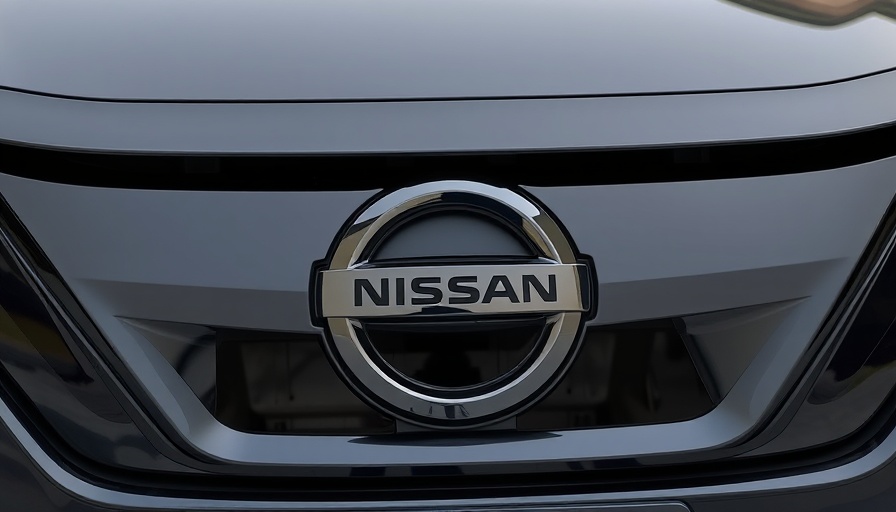
The Shifting Landscape of Electric Vehicle Production in the U.S.
The electric vehicle (EV) landscape in the United States is changing rapidly, with major implications for both consumers and the automotive industry. Recently, Nissan made headlines by announcing the cancellation of its plans to produce a new small crossover EV, designated the PZ1L, at its Canton, Mississippi plant. This decision reflects a broader trend in which automakers are reassessing their strategies in the face of changing market demands and production capabilities.
Understanding Nissan's Strategic Shift
Nissan's decision to consolidate production for its PZ1L at its Sunderland, U.K. facility instead of Canton highlights a significant strategic pivot. While the Canton plant was initially slated to produce several EV models, the updated plans emphasize higher-volume production that may better align with current market needs. This process of consolidation likely aims to optimize resources and enhance operational efficiency as the market for electric vehicles continues to evolve.
The Delay of Future Models: A Cause for Concern?
In addition to the cancellation of the PZ1L, Nissan is also delaying the anticipated release of other EVs previously scheduled for production in the U.S., pushing the timeline from 2025 to 2028. This notable delay raises questions about the company’s position in a competitive market. Are they lagging behind their rivals, or is this a calculated move in response to fluctuating demand?
Impact on Local Employment Opportunities
As Nissan transitions towards becoming a smart factory focusing on robotics and sustainable production practices, concerns have been raised about job stability for the existing workforce in Canton. The potential for layoffs looms large against the backdrop of a company-wide initiative that saw Nissan laying off 9,000 employees globally amidst declining sales. This reality poses an urgent need for dealerships and related industries to consider how these changes could affect employment and economic stability in the region.
Nissan's Road Ahead: Opportunities or Challenges?
Nissan's future lies in its ability to adapt and innovate as the global automotive market shifts increasingly towards electric vehicles. The discussions around a possible merger with Honda indicate that Nissan is not only focusing on its internal restructuring but also exploring partnerships that could bolster its market position. Will these moves provide the necessary momentum for Nissan to turn potential hurdles into opportunities for growth and recovery?
Conclusion: Navigating the Uncertain Terrain of EV Manufacturing
The evolving landscape of electric vehicle production presents both challenges and opportunities for Nissan and the automotive industry at large. While the cancellation and delays of key models may raise questions on the short-term strategy, the long-term vision prioritizing sustainable practices and technological advancements could serve as a crucial driving force for the company. As the industry watches closely, Nissan’s adaptability will determine its success in the coming years.
 Add Row
Add Row  Add
Add 




Write A Comment